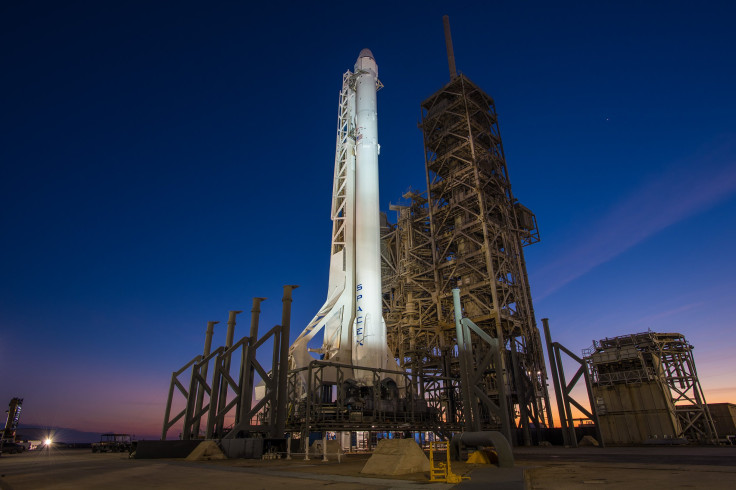SpaceX ISS Cargo Mission Launch Rescheduled For Feb. 19 After ‘1% Chance’ Of Error

UPDATE: 10:20 a.m. EST — SpaceX successfully launched a 5,500-pound resupply mission to the International Space Station early Sunday, a day after scrubbing a previous launch attempt because of a problem with the Falcon 9 rocket. The 6:39 a.m. PST launch was the first by the company from the Kennedy Space Center in Florida from the pad where Apollo and space shuttle missions were launched.
Liftoff! https://t.co/gtC39uBC7z
— SpaceX (@SpaceX) February 19, 2017
Original story:
Minutes before the scheduled liftoff, SpaceX CEO Elon Musk called off the company’s Falcon 9 launch Saturday morning to investigate a “slightly odd” piston movement in the upper stage of the rocket. The rocket, taking off from the Kennedy Space Center in Cape Canaveral, Florida, was to carry a Dragon cargo resupply mission to the International Space Station (ISS).
The next launch window for the Falcon 9 is now 9:38 a.m. EST Sunday.
All systems go, except the movement trace of an upper stage engine steering hydraulic piston was slightly odd. Standing down to investigate.
— Elon Musk (@elonmusk) February 18, 2017
Standing down to take a closer look at positioning of the second stage engine nozzle. 9:38am ET tomorrow is next earliest launch opportunity
— SpaceX (@SpaceX) February 18, 2017
Musk said there was no obvious relation to the small helium leak the company was investigating Friday, but said a link couldn’t be ruled out. He also pointed out that the decision to call off the launch was a precautionary move, more than anything else.
System was green for launch. I called it off.
— Elon Musk (@elonmusk) February 18, 2017
If this is the only issue, flight would be fine, but need to make sure that it isn't symptomatic of a more significant upstream root cause
— Elon Musk (@elonmusk) February 18, 2017
Btw, 99% likely to be fine (closed loop TVC wd overcome error), but that 1% chance isn't worth rolling the dice. Better to wait a day.
— Elon Musk (@elonmusk) February 18, 2017
The caution on the part of SpaceX makes sense, given the Sept. 1 explosion of a Falcon 9 rocket that had multiple negative consequences (even if short-term) for the company. There was the obvious loss of the rocket itself, and the $200 million satellite it was carrying, as well as damage to the launch pad (which has still not been fixed). The company also lost out on months of flight operations, and at least one client shifted some business to another launch provider.
The scheduled launch for Sunday morning, if it happens, will be telecast live by both SpaceX and NASA. The space agency will begin its live preflight coverage at 8:45 a.m. EST on NASA TV, while the commercial space launch company will live-stream the launch on its website.
If the Sunday launch is successful, the Falcon 9 rocket will put the unmanned Dragon cargo spacecraft in orbit, which will separate from the rocket about 10 minutes after liftoff, and take two days to reach the ISS. After being unloaded of its over 5,000 pounds of supplies and research material by astronauts aboard the space station, it will be packed with scientific experiments that will come back to Earth after spending roughly a month docked at ISS.
Dragon will splash down in the Pacific Ocean, somewhere off the coast of Baja California, roughly 30 minutes after it leaves ISS.
© Copyright IBTimes 2025. All rights reserved.





















